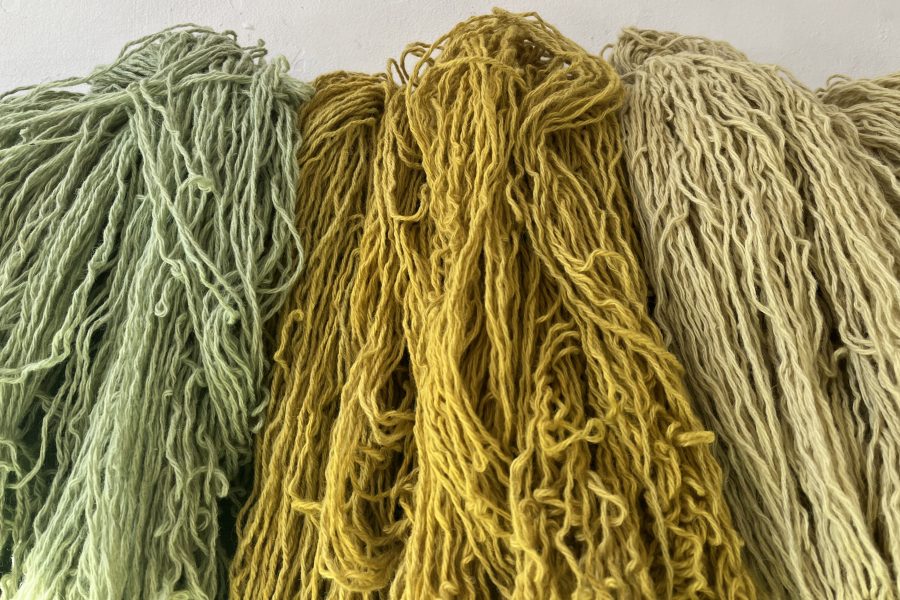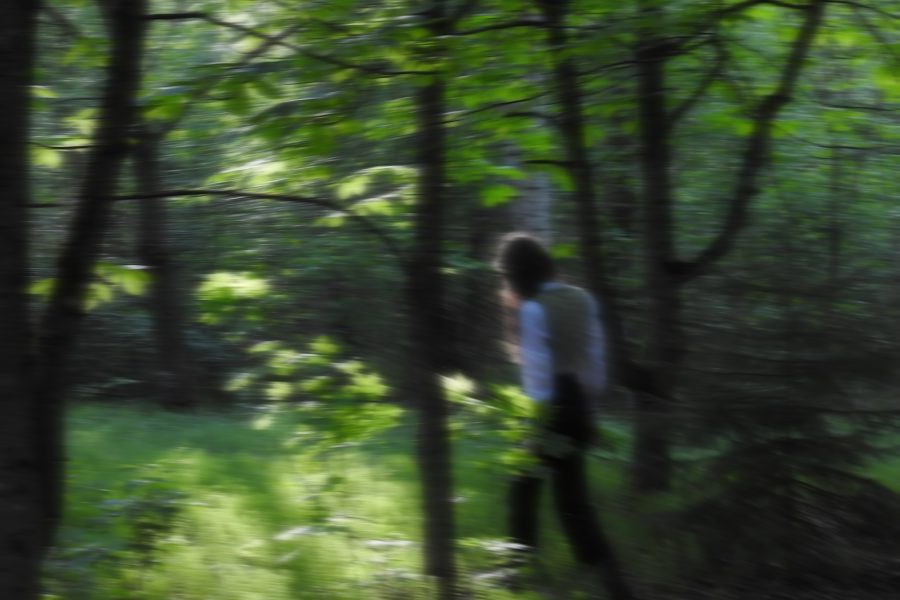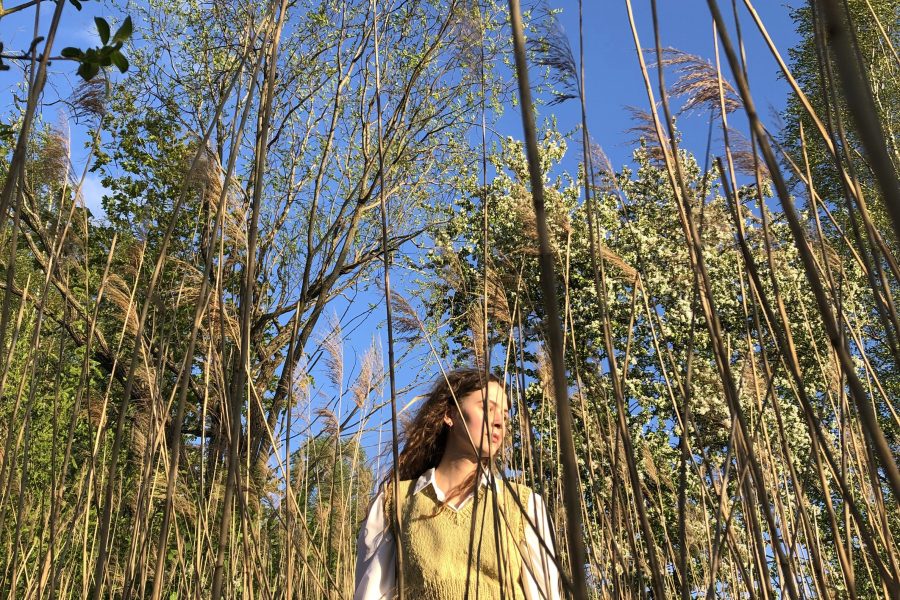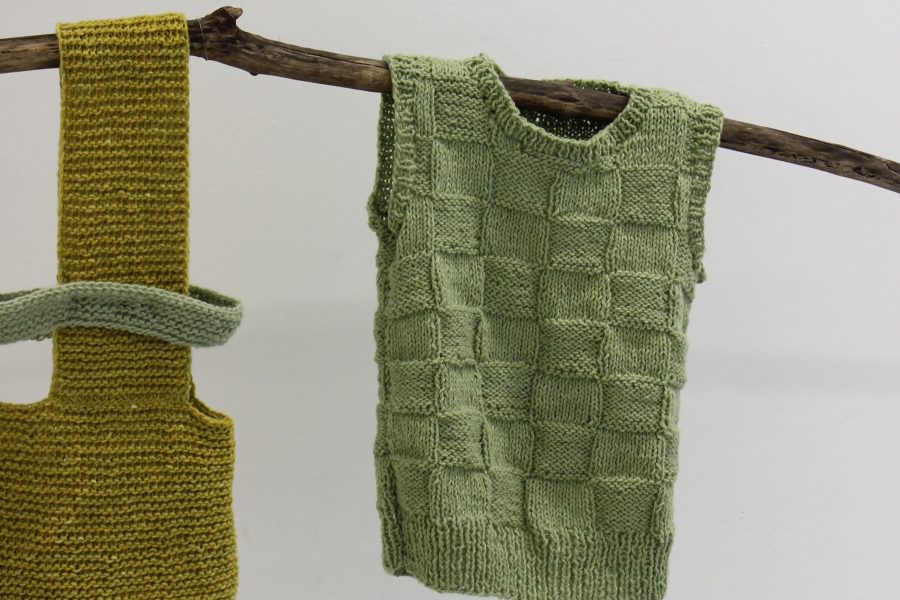The idea of biodegradable vests arose from the undeniable destructiveness of the textile industry. Even though the possibilities for textile recycling are broadening and clothes do not necessarily end up in landfills, nowadays widely used synthetic fibers produce up to 35% of global microplastic pollution. Synthetic dyes, transportation of materials and products – small aspects of fast fashion create a global catastrophe. These vests are the manifestation of the return of slow and conscious fashion. Every aspect of these vests, including wool, dye plants, and the manual labor required for the making of the vests is Lithuanian in order to reduce the carbon footprint of the product. Due to the fact that the product is completely natural, it can be composted in the soil or in the compost when it is no longer needed. Wool can completely decompose within a year in the right environment, releasing nitrogen, sulfur, and magnesium into the environment, improving water infiltration, maintaining proper ventilation, and thermoregulation, and reducing erosion, therefore its composting improves both soil quality and plant growth. Several samples of wool used in the product were placed in soil and compost and the first signs of decay could be seen after only 3 months. Due to their natural origin, these vests have the ability to be reborn and continue their life cycle even if they have become man-made waste.






